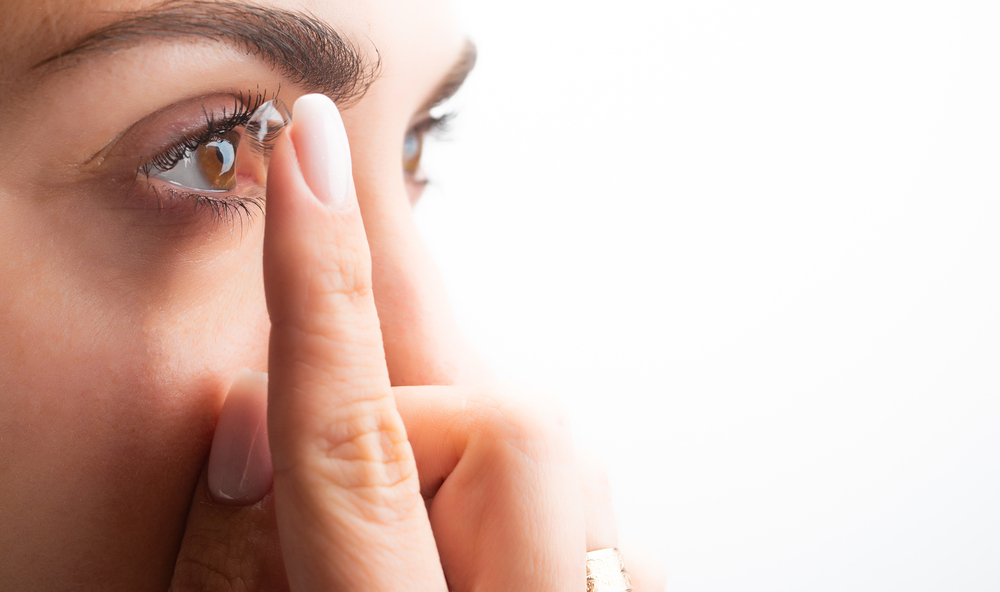
The process of contact lens fitting involves measuring the curvature of your eyes and determining the right type and size of lenses that will sit comfortably and provide clear vision. It's not just about getting the correct prescription; it's about ensuring that the lens fits your eye like a glove, that it moves with your eye naturally, and it doesn't cause any discomfort or vision problems. A poorly fitted contact lens can lead to discomfort, blurred vision, eye infections, or even damage to the cornea. Therefore, it's crucial to understand the fitting process and why it's so important.
The Importance of a Contact Lens Fitting
The goal of a contact lens fitting is to achieve two key things: comfort and clear vision. When it comes to comfort, a well-fitted contact lens feels like it's not there at all. A lens that fits well will move slightly with each blink but stay in place, allowing your eyes to stay moist and comfortable. On the other hand, a poorly fitted lens can cause discomfort, dryness, and irritation. It can also move too much or too little, disrupting your vision.
Clear vision, on the other hand, is the primary reason most people opt for contact lenses. A properly fitted lens will sit correctly on your eye, ensuring that light enters your eye at the right angle for clear vision. A poorly fitted lens may not correct your vision properly, leading to blurred or distorted vision.
The Role of an Optometrist
The role of an optometrist in the contact lens fitting process is crucial. An optometrist is a healthcare professional who specializes in eye care and vision health, including the fitting of contact lenses.
Your optometrist will conduct a comprehensive eye exam to determine your prescription and assess the overall health of your eyes. They will also measure the curvature and diameter of your cornea, the clear front surface of your eye, to ensure the contact lenses fit well.
Once the measurements are taken, your optometrist will discuss your lifestyle and preferences to determine the best type of contact lenses for you. They will also provide you with instructions on how to handle, clean, and care for your lenses to maintain optimal eye health and comfort.
Different Types of Contact Lens Fittings
There are different types of contact lens fittings based on the type of lenses and the specific vision correction need of the individual.
A standard fitting is for spherical lenses, which correct common refractive errors like myopia or hyperopia. Next, there's the toric fitting for lenses designed to correct astigmatism, a condition where the cornea is irregularly shaped, causing blurred or distorted vision.
Then we have multifocal fittings for lenses that correct presbyopia, a condition common in older adults where the eye loses its ability to focus on close objects. And finally, there's the specialty fitting for conditions such as keratoconus, where the cornea bulges into a cone shape, causing distorted vision.
The Role of Follow-up Appointments
Follow-up appointments are a critical part of the contact lens fitting process. They allow your optometrist to check that your lenses are still fitting correctly and comfortably, and that your eyes are healthy.
During the follow-up, your optometrist will check the fit of the lenses on your eyes, assess your vision, and ask about any discomfort or issues you may have had. They can also address any questions or concerns you may have and make any necessary adjustments to your lenses or care regimen.
Remember, your eyes can change over time, and regular check-ups ensure that your contact lenses continue to provide the comfort and clear vision they were intended to.
Ensuring Comfort and Clear Vision
A contact lens fitting is a vital step in achieving comfort and clear vision. It involves a comprehensive process, from a thorough eye exam to follow-up appointments, to ensure the perfect fit. The role of an optometrist is crucial in this process, guiding you through every step and ensuring your lenses provide optimal comfort and vision.
Are you looking to schedule a contact lens fitting? Visit Eyewellniss in our Edgewater, Livingston, or Paramus, New Jersey office. Our experienced optometrists are ready to guide you on your journey to comfort and clear vision. Please call (201) 945-8931, (973) 535-1171 or (201) 712-0888 to schedule an appointment today.








